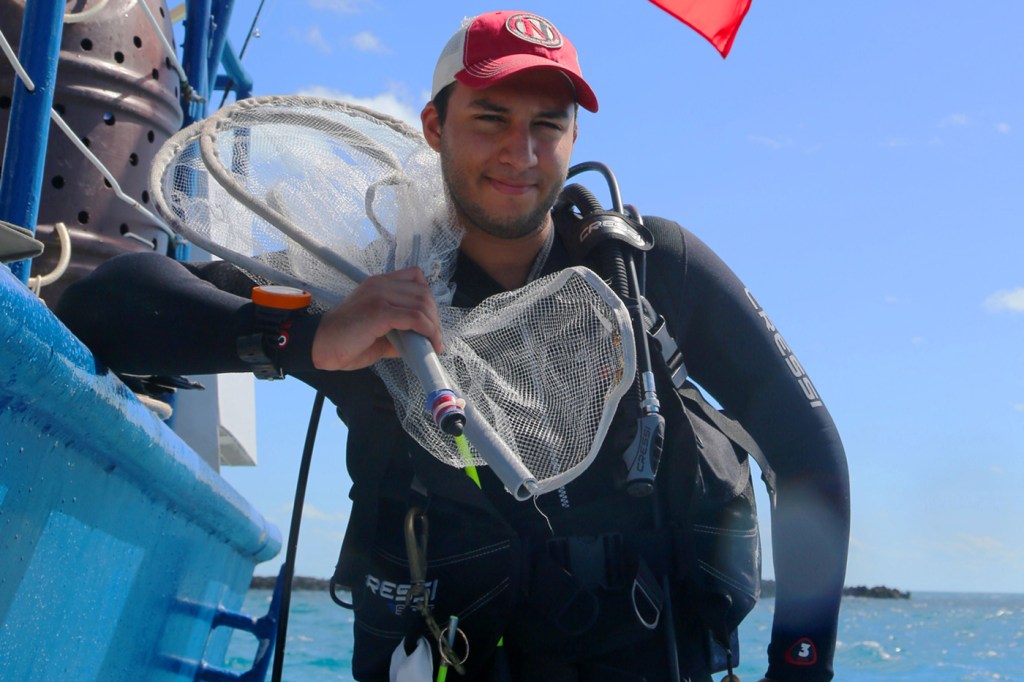Student dives in for Caribbean fish

Visit the New England Aquarium and you may see a fish caught by Northeastern student Alfred Kyrollos, S’15.
Last month, the biology student got the rare opportunity to travel to the Bahamas for the Aquarium’s biannual, 10-day fish collecting expedition to increase its Caribbean coral reef population.
“This was a once-in-a-lifetime opportunity,” Kyrollos said. “We were trying to catch fish that best exhibited the diversity of the Caribbean coral reef.”
Kyrollos initially connected with the Aquarium in 2011, when his diving skills earned him a co-op position in the Aquarium’s signature Giant Ocean Tank, where students feed the fish and maintain the 200,000-gallon chamber.
“Time management was something you needed to know well because you are running the show,” Kyrollos recalled. “The co-op also taught me leadership skills, which have resonated through the rest of my college and co-op experiences.”
During his co-op, the tank underwent a series of major renovations, requiring the fish be captured and moved to different locations in the Aquarium. Kyrollos had a knack for catching fish, a talent that earned him an invite on the expedition to the Bahamas.
The expedition team, made up primarily of Aquarium staff, dove three or four times a day in order to collect a total of 600 fish, which were kept in wells on the expedition’s vessel.
Kyrollos’ most rewarding catch was a scorpion fish, which he and his diving partner snagged using an empty jar that had been filled with peanut butter covered raisins. The scorpion fish is toxic to other fish, he said, and thus can’t be stored in a communal catch bag.
His expedition was funded by one of the Provost’s Undergraduate Research and Creative Endeavors Awards, which offer financial and academic support to Northeastern students seeking to conduct original projects of their own design.
Kyrollos will leverage what he learned from the experiential learning opportunity and author a research paper titled “Sustainable methods of fish collection and transport for aquaria,” an in-depth observation and analysis of fish collection from ocean to tank.
“So many people are catching fish using unsustainable methods,” Kyrollos said. “They are unknowingly using methods that could hurt the environment they are fishing in. It’s necessary to update the status of best practices and point out some potential problems.”